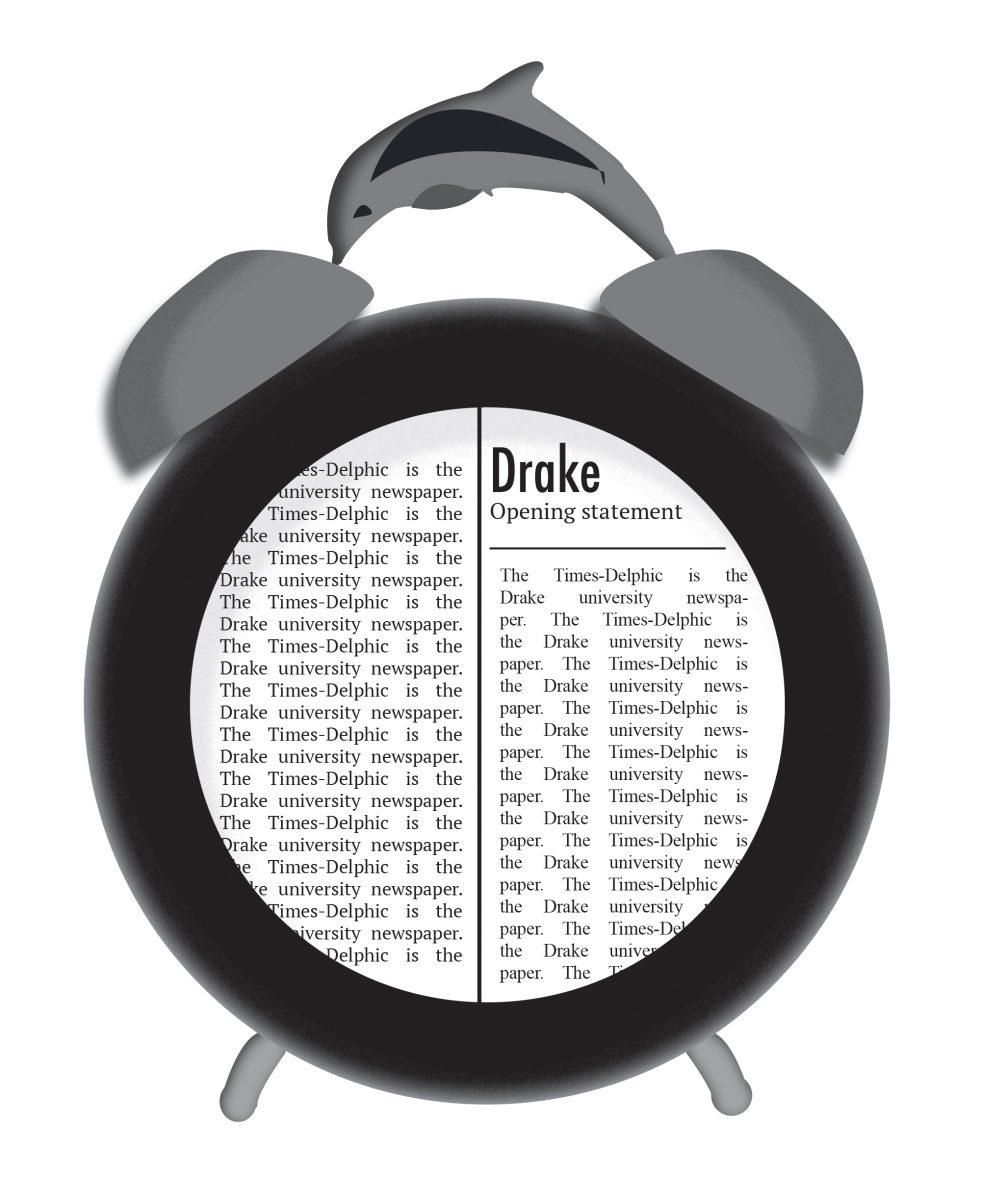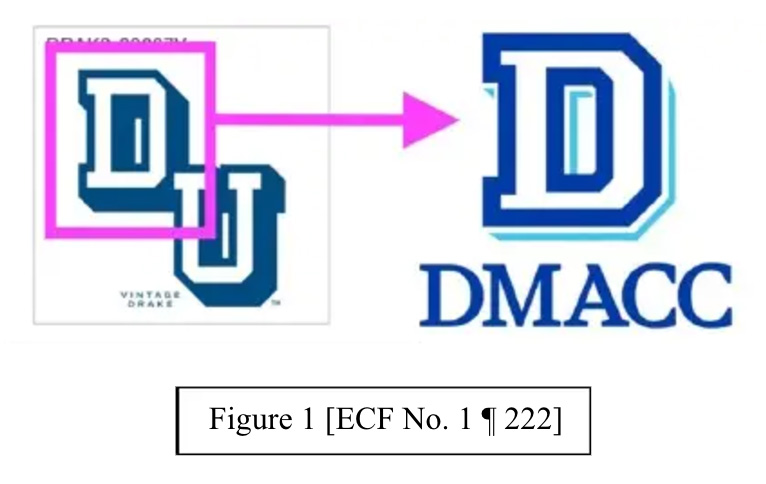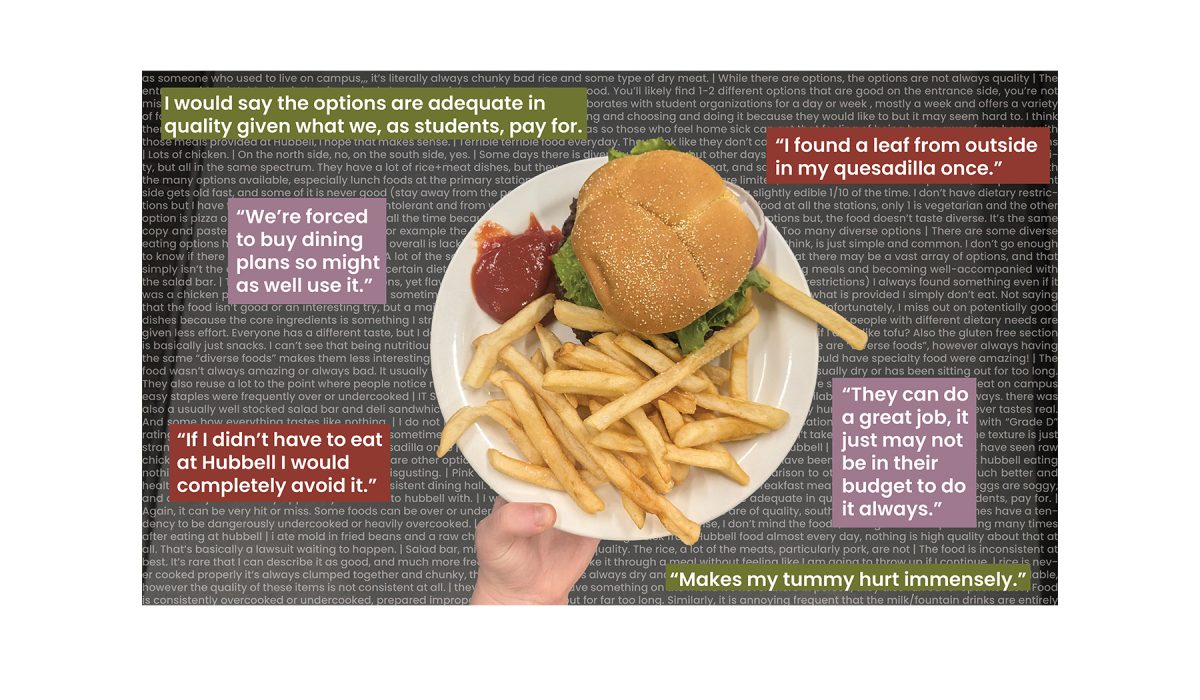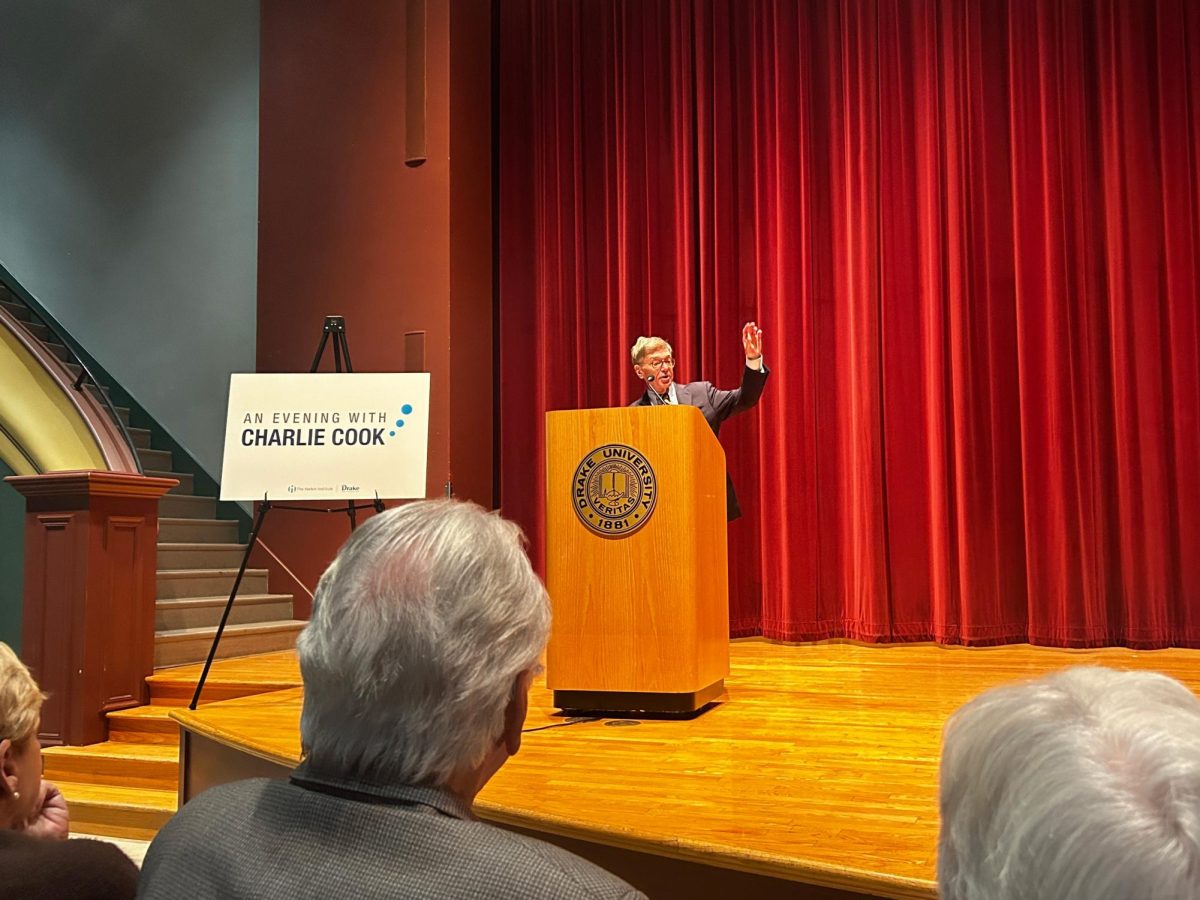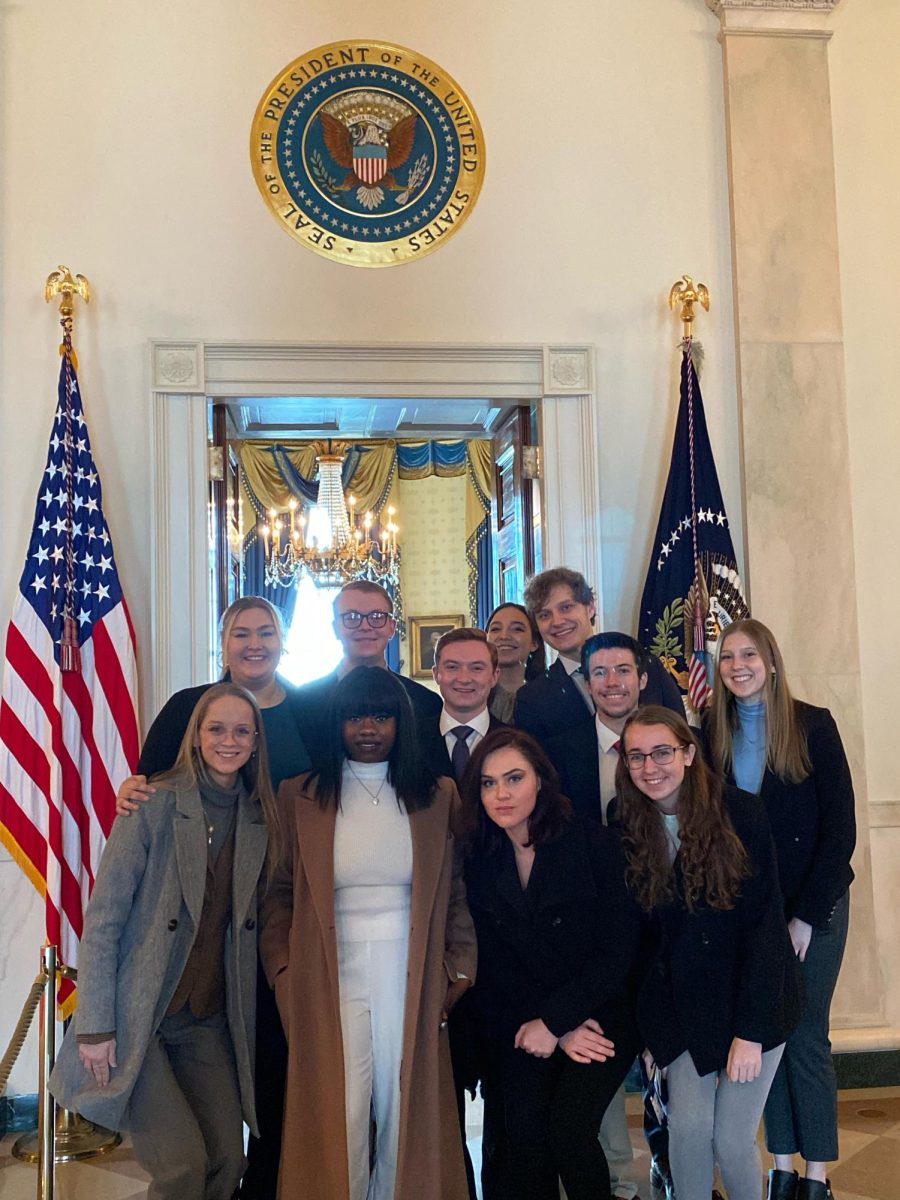BY: Lórien MacEnulty
There’s a reason why the words text and textile are so similar. They both stem from sheep’s wool.
Wool shows up in many places in the English language. The Latin word for tuft of wool is burra, which incidentally often covered desks, giving us words like bureau and bureaucracy. The first printing press in England didn’t use paper so much as stretched (and beer-soaked) sheepskin.
But the one line in the English language we examine for our purposes is that of the Roman orator Quintilian. In 95 AD, he wrote that storytelling is much like making fabric in that you chose your words and weave them together in textu iungantur. Thenceforth, all reading material was an allusion to the English’s language’s strange infatuation with sheep.
I learned this just a few weeks ago, not in a journalism class at Drake but in Etymologican, a uniquely rant-like book on etymology by British journalist Mark Forsyth.
The obvious application is that we journalists embroider our words into stories, knitting tapestries to decorate the pages of our newspapers. And that’s exactly what the Times-Delphic staff intends to do for you this year.
That reminds me; newspapers, themselves, have a far less invigorating etymology. They are papers.
Papers that carry the news.
How surprising.
These papers that carried the news started in Venice around 1550, whereabouts the Venetian merchants acquired tidbits of quotidian information for a halfpenny an issue. For such cheap news they exchanged gazetas, Venetian coins of little value, aptly engraved with an etching of a magpie (also called a gazeta). Hence why some newspapers are called Gazettes.
But what of our very own newspaper, The Times-Delphic ? Of course, times is fairly self-evident as it refers to a period or an interval—interestingly enough, it has the same linguistic derivation as ‘tide.’ Not to mention, here at the TD, we want our news to be temporally relevant.
But Delphic maintains a more ambiguous definition; that is, according to Merriam-Webster the word is literally synonymous with ‘ambiguous’ and ‘obscure.’
It’s an ironic connotation for a newspaper to carry—and one that, unfortunately, the TD cannot uphold in action. As journalists, we pledge a certain fidelity to transparency, to delivering you the most appropriate, accurate and reliable campus news. Our team this year is devoted to discussing the most causal issues of this university, celebrating Drake’s achievements and, when necessary, exposing its underbelly.
Delphic is a word not only obscure but somewhat prophetic. Delphi was a Greek temple-of-old nestled on the slopes of Mount Parnassus. The resident oracle there allegedly proclaimed the whim and will of the sun deity Apollo. Tangentially, delphic seems distantly related to the ancient Greek word for ‘dolphin.’
So what’s my point in telling you all this?
Of course, the answer is absolutely no reason at all, other than to impart some useless knowledge which you will then fruitfully douse unsolicited upon some hapless chap at your next social engagement.
Also, I’m inclined to inform you, dear reader, of your circumstance. For etymologically speaking, you’re reading an opinion from a temporally-relevant dolphin who also happens to be your trusty Times-Delphic editor.

